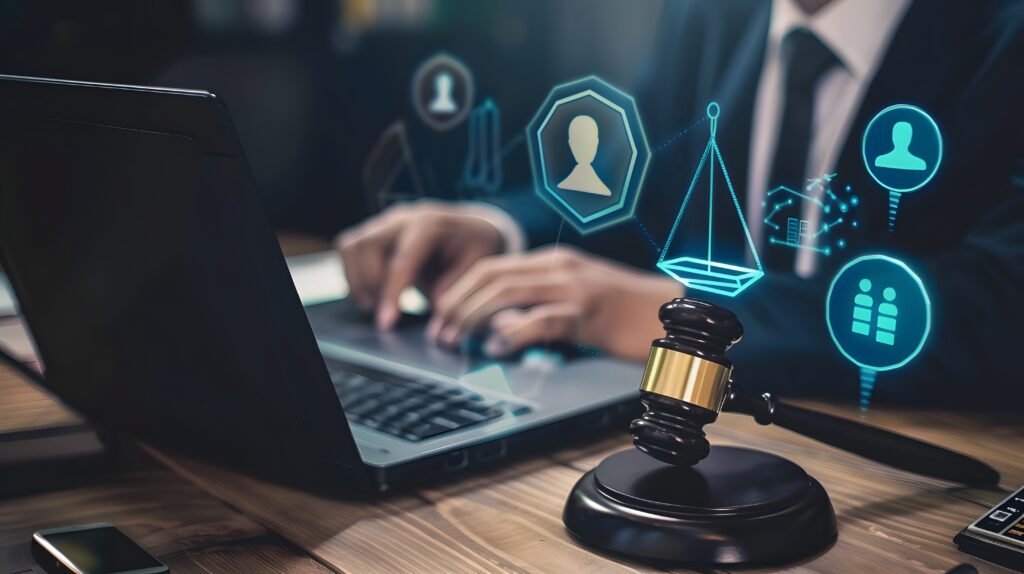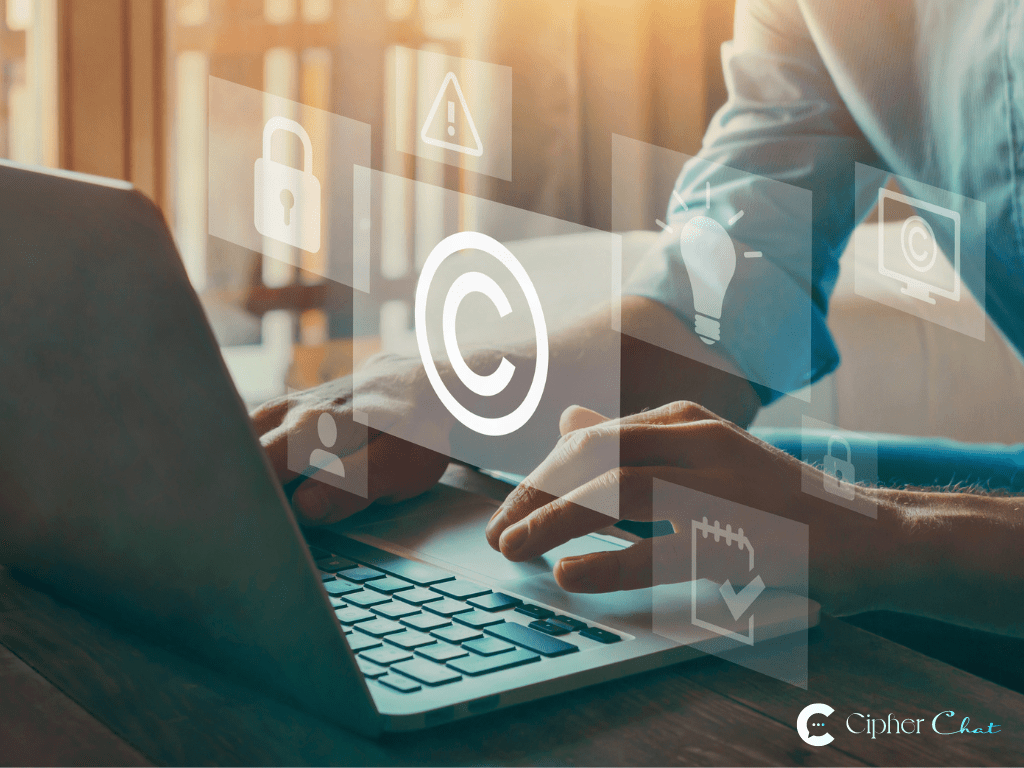
Have you ever wondered how secure your legal firm’s communication really is? With sensitive client information at risk, legal firms need more than just standard security measures—they need end-to-end encryption (E2EE). Imagine your firm sending critical case information through unsecured channels, leaving it vulnerable to breaches. Could you afford the consequences?
In an industry where confidentiality is paramount, end-to-end encryption ensures that only the intended recipient can access the information. Let’s dive into why E2EE is essential for legal firms, how to implement it effectively, and the steps to take in safeguarding your communication channels.
Why Legal Firms Need End-to-End Encryption
1. The Nature of Legal Communication
Legal firms handle vast amounts of sensitive client information, from contracts to legal opinions, that, if leaked, could have disastrous consequences. Unlike other industries, legal matters often involve privileged information. Losing control over this data not only damages your firm’s reputation but could lead to legal repercussions and a breach of client trust.
- Case Study: LawTech Legal Solutions
LawTech Legal Solutions, a fictitious legal firm, operated in multiple jurisdictions handling high-profile corporate clients. Initially, they relied on basic email encryption. However, a minor breach exposed internal communications, leading to a loss of trust with key clients. To protect future cases, they switched to end-to-end encryption across all their communication platforms, ensuring the highest level of security.
How End-to-End Encryption Works in Legal Communication
1. Understanding E2EE in Practice
End-to-end encryption ensures that the message you send is encrypted on your device and only decrypted on the recipient’s device. It protects communications from being accessed by unauthorized parties, including service providers or potential hackers. Even if intercepted, the information is unreadable without the decryption key.
- Key Benefit: No third party—including the communication platform itself—can read the encrypted messages. Only the sender and receiver have access.
2. Implementation: Messaging and Email Solutions
For legal firms, E2EE can be applied to various communication tools:
- Encrypted Messaging Apps: Tools like encrypted chat platforms offer secure real-time messaging between attorneys, clients, and external collaborators.
- Encrypted Emails: Legal documents often exchanged via email should be protected with encryption that ensures the message contents are scrambled until the recipient unlocks them.
The Compliance Factor: Why Encryption Is Non-Negotiable
1. Regulatory Requirements in the Legal Industry
Legal firms must comply with data protection regulations such as the General Data Protection Regulation (GDPR) in Europe and HIPAA in the United States. These laws demand strict protection of personal data, with heavy penalties for breaches.
- Why This Matters: If your communication channels aren’t fully secure, you could face significant fines, not to mention the damage to your firm’s reputation.
2. Client Confidentiality and Ethical Obligations
Legal firms have a duty to protect client information under attorney-client privilege. Any breach of confidential communication could undermine a case and violate ethical standards. End-to-end encryption helps ensure that sensitive data stays between you and your client.

How to Implement End-to-End Encryption in Your Legal Firm
1. Choose the Right Tools
Selecting the right platforms for communication is crucial. Legal firms should prioritize platforms that offer strong end-to-end encryption for both messaging and document sharing.
- Encrypted Email Services: Look for email providers that offer built-in E2EE without requiring the client to install external plugins.
- Secure File Sharing: Tools that support encrypted file sharing ensure that contracts, legal opinions, and other documents are transmitted securely.
2. Multi-Factor Authentication (MFA)
Adding Multi-Factor Authentication to your encrypted platforms adds another layer of security. MFA requires users to provide two or more verification methods—such as a password and a fingerprint—to gain access, further securing your firm’s communications.
3. Regularly Update Encryption Protocols
Encryption technology is constantly evolving. It’s essential to ensure that your legal firm’s communication tools are up to date with the latest encryption standards, such as AES-256 (Advanced Encryption Standard).
- Tip: Conduct regular audits to ensure that your encryption protocols are up to date and that all team members are using secure methods for communication.
Real-Life Example: How LawBridge Legal Firm Secured Its Communication
LawBridge Legal Firm, a fictitious law firm specializing in intellectual property, managed highly sensitive patent cases for global clients. Due to the sensitive nature of their work, they implemented end-to-end encryption across all communication channels, including client portals, file-sharing platforms, and internal messaging systems.
Their proactive approach saved them from potential breaches when a phishing attack targeted their firm. Since their messages were encrypted, the hackers couldn’t access any client data. LawBridge’s commitment to security not only protected their reputation but helped them gain new high-profile clients who prioritized confidentiality.
Common Pitfalls and How to Avoid Them
1. Failure to Train Staff
Implementing encryption without training staff on its use is a recipe for disaster. Legal professionals must understand how to use secure tools, recognize phishing attempts, and follow proper communication protocols.
- Solution: Offer regular cybersecurity training sessions to ensure that all employees are aware of best practices.
2. Inconsistent Use of Encrypted Channels
It’s not enough to use encrypted communication sporadically. Legal firms must ensure that every piece of sensitive communication—whether internal or external—is conducted over secure, encrypted channels.
- Best Practice: Enforce strict internal policies that require the use of encrypted communication for all client-related matters.
How Could It Be Better? Strengthening Encryption Practices
While implementing end-to-end encryption is a great start, here are a few ways to further strengthen your security:
- Adopt Zero-Trust Architecture: This security model assumes that every device and connection is a potential threat. Continuously verify and limit access to sensitive data based on necessity.
- Use Advanced Threat Detection: Implement tools that monitor unusual activity within your encrypted platforms to identify and stop potential breaches.
- Client Education: Make sure that your clients are aware of the importance of using secure channels to communicate with your firm.
The Future of Secure Communication in Legal Firms
With the rapid advancement of technology, legal firms must stay ahead of the curve in securing their communications. Artificial Intelligence (AI) and blockchain technology are set to play significant roles in enhancing encrypted communication, allowing for even more secure exchanges of legal documents and messages.
As clients become more aware of the importance of secure communication, legal firms that prioritize encryption will stand out as trusted advisors.
Table of Contents
For legal firms, the security of communication isn’t optional—it’s essential. End-to-end encryption ensures that your sensitive communications remain private and protected from unauthorized access. By adopting secure platforms, training your staff, and staying updated on the latest encryption protocols, your firm can ensure client trust and compliance with data protection regulations.
Don’t leave your firm’s communications vulnerable. Start implementing end-to-end encryption today and protect both your clients and your business.






